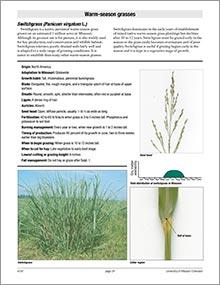

Dairy Grazing: Selecting the Right Forage, Page 21
Reviewed
Switchgrass is a hardy, warm-season grass ideal for pastures and hay. It thrives in Missouri soils and provides quality grazing when managed properly.
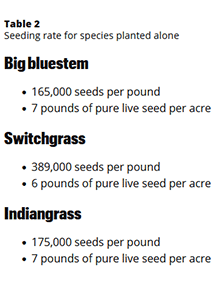
Big Bluestem, Indiangrass and Switchgrass
Reviewed
Big Bluestem, Indiangrass and Switchgrass have been reintroduced successfully across Missouri. Visit our website today to learn more.
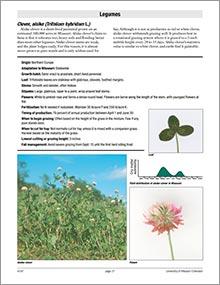
Dairy Grazing: Selecting the Right Forage, Page 24
Reviewed
Annual lespedeza is a pasture legume providing high-quality forage in midsummer, thriving on infertile soils, and not causing bloat in cattle.
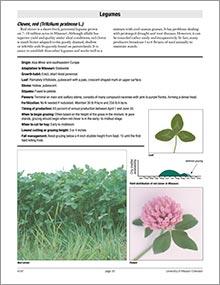
Dairy Grazing: Selecting the Right Forage, Page 27
Reviewed
Learn about Hairy Vetch, a winter annual legume used for spring pasture and silage. Discover its growth habits, benefits, and best practices for grazing.
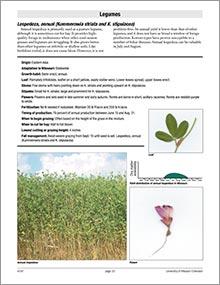
Dairy Grazing: Selecting the Right Forage, Page 30
Reviewed
White clover is a legume suitable for cool, moist climates, providing high-quality forage for livestock. It may require careful grazing management.
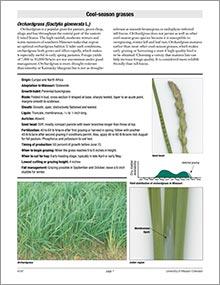
Dairy Grazing: Selecting the Right Forage, Page 04
Reviewed
Learn optimal orchardgrass management for dairy grazing, including growth habits, fertilization, and seasonal guidelines, to maximize forage yield and quality.
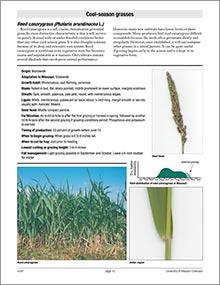
Dairy Grazing: Selecting the Right Forage, Page 07
Reviewed
Reed canarygrass is a drought-tolerant, rhizomatous grass that grows well in wet soils and provides high-quality forage early in the season.
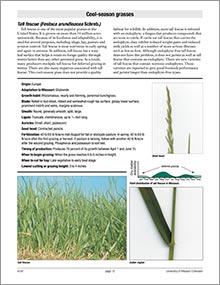
Dairy Grazing: Selecting the Right Forage, Page 10
Reviewed
Discover the benefits and challenges of tall fescue as a forage option, including growth habits, nutritional value, and management tips for livestock grazing.
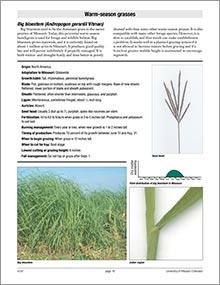
Dairy Grazing: Selecting the Right Forage, Page 13
Reviewed
Big bluestem is a drought-resistant perennial grass ideal for grazing and hay production, thriving in Missouri soils with excellent forage and wildlife value.
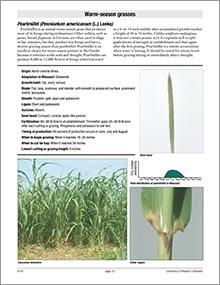
Dairy Grazing: Selecting the Right Forage, Page 19
Reviewed
Pearlmillet is a drought-tolerant, high-yield grass perfect for grazing and hay production, thriving in acidic soils and warm summer conditions.
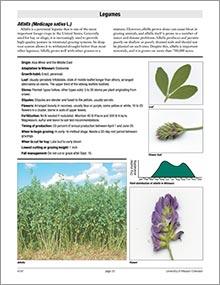
Dairy Grazing: Selecting the Right Forage, Page 22
Reviewed
Learn how to select and manage the right forage for dairy grazing systems, focusing on alfalfa’s growth, fertilization, and optimal grazing practices.
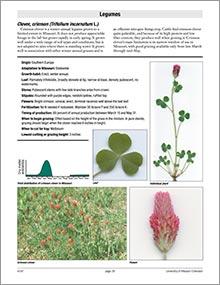
Dairy Grazing: Selecting the Right Forage, Page 25
Reviewed
Birdsfoot trefoil is a short-lived perennial legume producing high-quality forage on challenging soils, offering non-bloating feed for cattle.
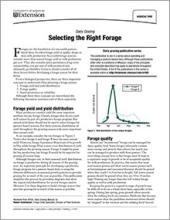
Dairy Grazing: Selecting the Right Forage, Page 32
Reviewed
The publication offers guidance on selecting the right forage for dairy grazing, including various types of grass and their yield, quality, and persistence.
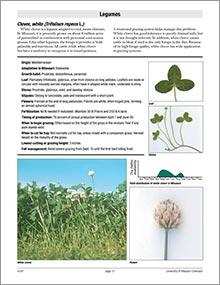
Dairy Grazing: Selecting the Right Forage, Page 28
Reviewed
Kura clover is a persistent legume with high forage yield and quality, ideal for grazing systems but slow to establish.
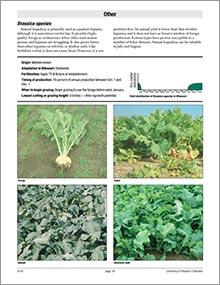
Dairy Grazing: Selecting the Right Forage, Page 31
Reviewed
Brassica species: annual lespedez
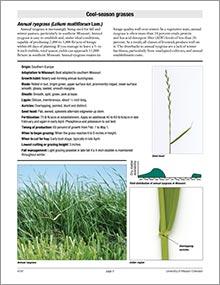
Dairy Grazing: Selecting the Right Forage, Page 02
Reviewed
Annual ryegrass offers fast growth, winter hardiness, and high nutritional value, making it an excellent choice for dairy grazing and temporary pasture.
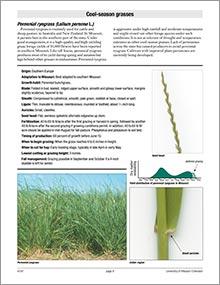
Dairy Grazing: Selecting the Right Forage, Page 05
Reviewed
Learn about perennial ryegrass and its adaptation to Missouri's climate, including best growth practices, grazing management, and fertilization tips.
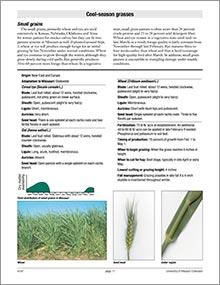
Dairy Grazing: Selecting the Right Forage, Page 08
Reviewed
Discover tips for selecting the right forages like small grains for winter grazing, including planting and management strategies tailored to Missouri's climate.
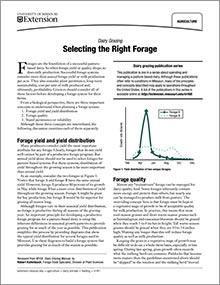
Dairy Grazing: Selecting the Right Forage
Reviewed
Dairy grazing publication series
This publication is one in a series about operating and managing a pasture-based dairy. Although these publications often refer to conditions in Missouri, many of the principles and concepts described may apply to operations throughout the United States.
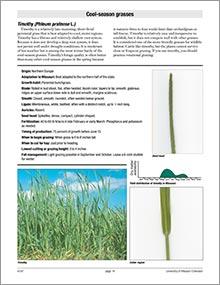
Dairy Grazing: Selecting the Right Forage, Page 11
Reviewed
Discover the characteristics, growth habits, and management tips for timothy grass (Phleum pratense L.) in dairy grazing systems.
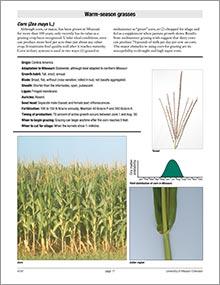
Dairy Grazing: Selecting the Right Forage, Page 14
Reviewed
Discover the benefits and challenges of using corn for grazing dairy cows, including high feed yield, quality, drought risk, and input costs.
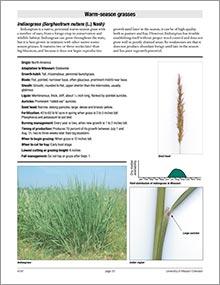
Dairy Grazing: Selecting the Right Forage, Page 17
Reviewed
Indiangrass is a warm-season, perennial grass offering quality forage and wildlife habitat. Best grown in mixtures, it thrives statewide with proper management.
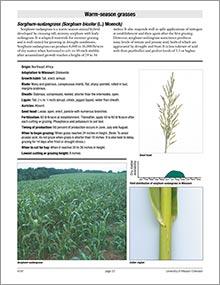
Dairy Grazing: Selecting the Right Forage, Page 20
Reviewed
Learn about sorghum-sudangrass, a warm-season annual hybrid ideal for summer grazing, known for high yield and drought tolerance.
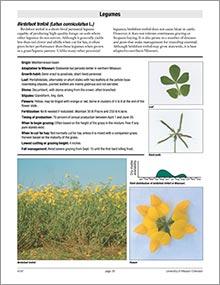
Dairy Grazing: Selecting the Right Forage, Page 23
Reviewed
Learn to choose the right forage for dairy grazing, with details on various legumes, grasses, and management tips for better productivity and sustainability.
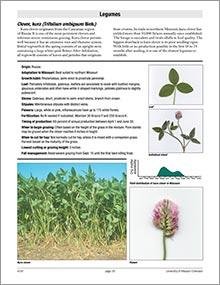
Dairy Grazing: Selecting the Right Forage, Page 26
Reviewed
Crimson clover is a high-protein legume ideal for early spring grazing. Learn about its growth, benefits, and ideal conditions for effective dairy grazing.